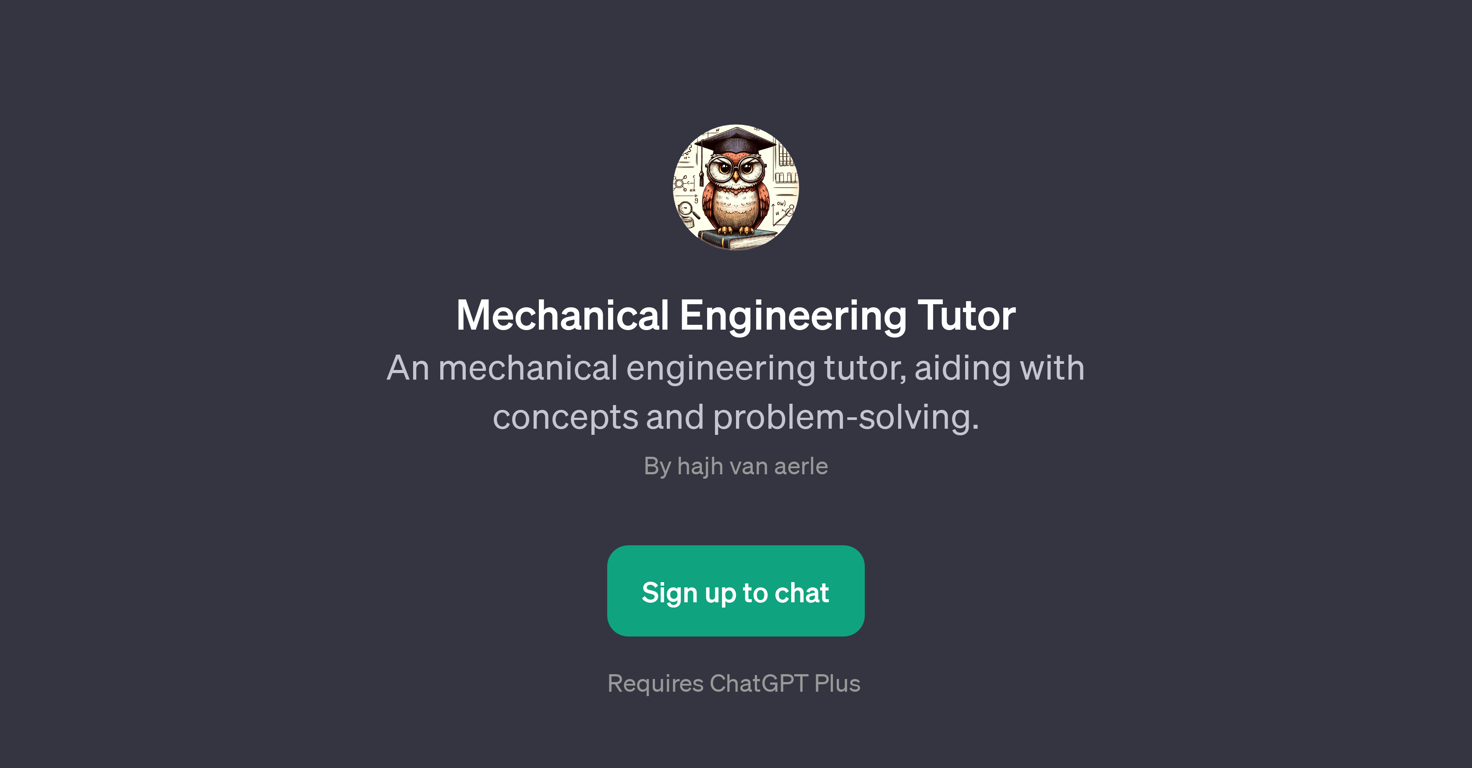Mechanical Engineering Tutor

Overview
Mechanical Engineering Tutor is a General Pre-training Transformer (GPT) that facilitates understanding in the domain of mechanical engineering. It functions as an educational aide by elucidating intricate concepts and assisting with problem-solving.
By integrating with the ChatGPT, this GPT unveils a platform to engage and learn mechanical engineering principles interactively. It extends support on an array of topics such as hydraulic systems, the stress-strain curve in material science, and the fundamental laws of thermodynamics, to name a few.
The technology behind this GPT allows it to provide answers to comprehensive questions and explain the critical principles inherent in mechanical engineering.
Users are welcomed with a prompt to kick-start their mechanical engineering class and can initiate their learning journey by asking questions such as 'Explain the stress-strain curve in material science' or 'What's the principle behind hydraulic systems?'.
The Mechanical Engineering Tutor GPT is an innovative approach to streamline the learning process by breaking down complex ideas into simpler understandable units.
Releases
Top alternatives
-
 AI tutor unlocks mechanical engineering secretsOpen
AI tutor unlocks mechanical engineering secretsOpen -
 AI companion for mechanical engineering expertiseOpen
AI companion for mechanical engineering expertiseOpen



How would you rate Mechanical Engineering Tutor?
Help other people by letting them know if this AI was useful.